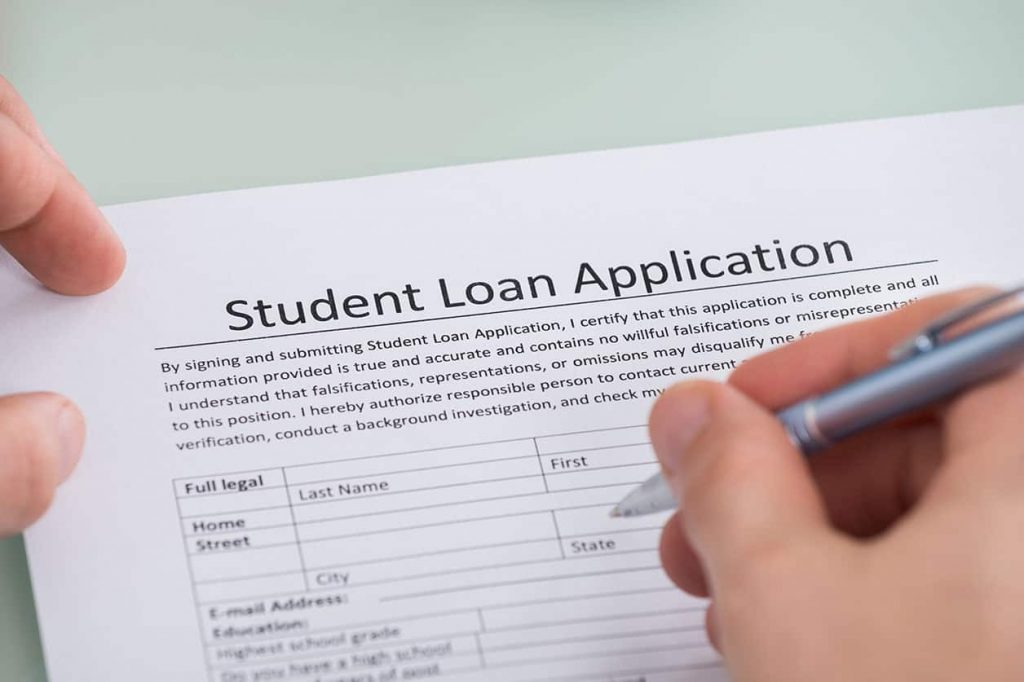Cosigning a Student Loan: Pros & Cons
The process of taking SAT/ACT exams, sending out handfuls of college applications, and eventually deciding on your school of choice is an emotional rollercoaster ride for even the most prepared and least anxious of students. At the very end of this arduous process, students (and parents!) find themselves at the very beginning of the next undertaking: financing a college education.
For lucky students, their parents or extended relatives are there to help. For many others, student loans are oftentimes the only viable option. As an immediate family member, extended relative, or family friend of someone pursuing a university-level education, you may be approached to cosign a student loan.
Much attention is given to student loans, however little attention is given to the impact of cosigning a student loan. For anyone that is considering a role as a cosigner, besides acknowledging the obvious benefit to the student borrower (i.e. they’ll be able to qualify for the loan!), it’s also necessary to know what’s at stake for you.
Who can cosign a student loan:
More often than not, a cosigner can be anyone with a strong credit history who has a willingness to help the student in question.
All lenders have their own cosigner requirements, however many institutions require cosigners to have a credit score of 670 or better and sufficient income to pay back the loan in the event the primary borrower defaults and is unable to repay. There are cases when lenders will go a step further to get a better sense of the cosigner’s overall stability – this can include reviewing the cosigner’s job history, how long they’ve lived in their home, and whether they’ve been in their job for at least a year.
Additionally, one of the least discussed (yet most important!) topics for deciding who should cosign a loan is the cosigner’s health. Many private lenders include language in the lending agreements that allow them to demand that the loan be paid in full upon the death of the cosigner. This is a point that deserves more attention considering that it’s not uncommon for grandparents (many who are older and may not be in their best health) to serve as cosigners.
What does it mean to cosign a student loan:
Personally, I’ve never encountered a student fresh out of high school who met the requirements to take out a student loan without a cosigner. This is likely due to their limited income and minimal (often non-existent) credit history. As the cosigner of a student loan, you are guaranteeing repayment of the debt. As cosigner, you hold a legal obligation to take over debt repayment in the event the borrower cannot keep up.
When banks lend money to borrowers for real estate in the form of a mortgage, the property itself serves as collateral. If the borrower is unable to keep up with their payments, the lender has peace of mind knowing it can cut its losses by seizing the property and selling it to a new buyer.
Considering that student loans are not backed by any physical collateral that can be seized and resold, a cosigner is a bank’s best option to recover an owed student debt.
Naturally, many students look towards their financially-stable family members to cosign student loans.
When parents or family friends of the borrower ask me for my thoughts on cosigning a student’s debt, I ask two questions:
- Are you prepared for the responsibility to pay off this debt if the borrower cannot keep up with payments?
- If no, DON’T cosign!
- If yes, next question…
- Do you, personally, have any large upcoming purchases/investments that will require borrowing a large sum of money (such as a new home purchase/mortgage or business loan)?
- If yes, maybe don’t cosign. REASON: The cosigned loans will show up on your credit report and may complicate/restrict your ability to borrow.
- If no, consider the borrower, your relationship with that person, and your confidence that they will be responsible in repaying the debt. If you accept the risks of being a cosigner and trust the borrower’s explicit commitment to repay the debt – go for it.
Benefits of cosigning a student loan:
For starters, the student borrowers are the primary beneficiaries of a cosigned loan. Cosigners allow students who would otherwise not qualify for a student loan to qualify and secure the funding needed to pursue their education. Additionally, if the cosigner is someone with stellar credit and strong income, the lender may take these facts into account and offer loans with lower, more competitive interest rates.
Many borrowers need cosigners for student loans due to not having much (if any) credit history. By having a student loan in their name and staying consistent on their monthly repayment, student borrowers are making significant (albeit unintentional) strides in establishing a personal credit history.
For cosigners, there’s little personal benefit to cosigning a loan (besides seeing a potential loved one pursue their dreams).
Drawbacks of cosigning a student loan:
A cosigner’s credit score will be impacted if the primary borrower misses a payment. Despite effectively serving as co-borrowers, cosigners rarely ever receive any formal notice that the primary borrower (i.e. the student) has missed payments. Unfortunately, missed payments are a common occurrence that frequently occur when borrowers are not setup for autopay or when a new loan servicer assumes the loan.
Another drawback to cosigning a loan is its impact on the cosigner’s debt-to-income ratio. As discussed before, the cosigned loan will show up on a cosigner’s credit report and may therefore reduce the cosigner’s ability to qualify for a personal loan or mortgage. Even if able to qualify for the loan, the increased debt-to-income ratio may result in the cosigner ending up with a less competitive interest rate.
In the event that the borrower is unable to repay the loan, collection agencies will look to the cosigner for payment. For most cosigners, this is the most significant drawback to cosigning a student loan and the one that must be most seriously considered when deciding to serve as a cosigner.
Even in the best of circumstances, a borrower and cosigner’s financial entanglement leaves the door wide open for relational stress.
How to decide whether to cosign a loan:
Making the final decision whether or not to cosign is personal. At a minimum, cosigners should have a sincere conversation with the prospective borrower to ensure the borrower understands the implications, and risk, to a) themselves and b) the cosigner.
It’s recommended that prospective cosigners also take an inventory of their own finances during this process. Be sure to consider your credit and to factor in whether or not any upcoming expenses will require a loan.
How to get a cosigner release:
Unfortunately, loan servicing companies never voluntarily let borrowers or cosigners know when they qualify for a cosigner release. Getting a cosigner release for a student loan typically requires that the borrower has graduated from school, has made at least 12 on-time payments, and has a sufficient credit score (credit score > 600) and income to repay the debt on their own. Additionally, it’s also typical that loan servicers will request the borrower (not the cosigner) to initiate the release process.
As a financial planning firm, we have clients who are the borrowers and others who are the cosigners. Regardless of borrower/cosigner status, we always work to have cosigners released as soon as possible.
- Benefit of cosigner release to borrowers: Many private student loan promissory notes have provisions that allow the servicer to place the borrower in default (even if payments have been made on time) if the cosigner dies or files for bankruptcy. Releasing the cosigner as early as possible can prevent borrowers from experiencing surprise defaults and student loan balances automatically being due in full that are no fault of their own.
- Benefit of cosigner release to cosigners: A parent or family member opts to cosign a student loan so that the borrower can pursue an advanced education. From the very beginning, it should be understood that releasing the cosigner should be a priority following the borrower’s graduation. Getting released as a cosigner means the former cosigner’s credit will no longer be impacted by missed payments and that the original borrower will be fully accountable for the debt.
The Consumer Federal Protection Bureau (CFPB) offers sample letter templates that borrowers/cosigners can send to servicers to request a consigner release.
For additional reading, our co-founder, Dennis McNamara, was featured in Forbes on this topic: https://www.forbes.com/advisor/student-loans/pros-and-cons-of-co-signing-a-student-loan/






